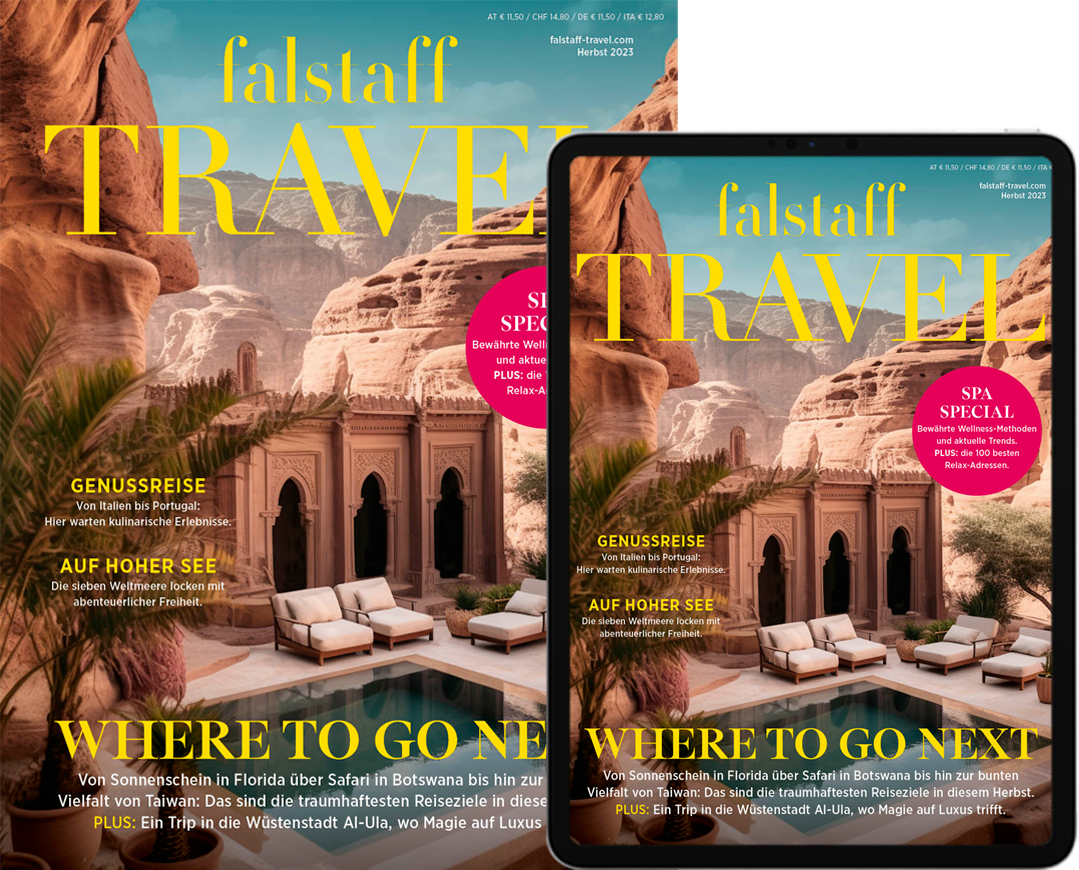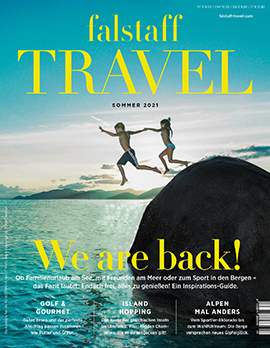
Boatlife: Life on the High Seas
More and more people want to experience boundless freedom - and some are temporarily moving onto a boat to do so. Whether on a sabbatical, as a temporary home office or as an alternative lifestyle without a permanent home: The great adventure awaits on the high seas.
January 11, 2024
© Photo Kika Mevs and Daniel Deckert
The wind blows through your hair, the spray splashes in your face and you sail towards the sun: Sailing around the world sounds like the ultimate freedom. There are no alarm clocks ringing, no rush hour traffic waiting - no hamster wheel to break out of. There's endless time and space at sea, you can swim where, when and for how long you feel like it and drop anchor in the most beautiful bays to snorkel or dive. You catch your own dinner and the starry sky shines brighter than it ever could in the city.
© Photo Jessica Schoeller-Szüts and Jan Hendryk
With Boatlife, the journey is the destination and every day is a new adventure. The trend is towards slow travel anyway: simply drifting along and experiencing the most beautiful places as unfiltered and up close as possible. Outdoor travel is very popular, not least since the pandemic. People want to expose themselves to the wind and weather again and leave their comfort zone behind. Nowadays, however, more and more people are actually living out these dreams, whether temporarily or as an alternative lifestyle with an indefinite end.
Less is more
© Photo Elena Dostal and Ben Schaschek
Boatlife not only stands for freedom, but also for reduction. You have to get rid of superfluous items and hardly have any fancy clothes with you because there's only room for the essentials anyway. Extensive shopping trips ashore? Rather counterproductive. If you decide to live temporarily on a boat, you first have to clear out your head and your closet. A sailing boat feels like a tiny house at best, there is not much space to retreat to. Many people who have been on sailing boats for a long time say it has changed them. They no longer need unnecessary things, they need less rather than more.
Niklas Marc Heinecke
The ocean brings you into balance, they recharge your batteries, you get to know how to live in the moment again - or have learned to combine work and pleasure in a new way. Digital nomads not only live on their boat, but also make a living from their floating office. This used to be difficult, but now an Internet connection can be established almost anywhere via a local SIM card on a cell phone. In the harbor, you usually also have WLAN - but how stable the connection is, of course, can never be entirely certain. The motto here is also Relax! - you can't plan everything. You have to learn to deal with challenges in a more relaxed and creative way. At the same time, discipline is extremely important when you are so detached from everything. You have to check your emails regularly, even if the sea is glowing a tempting turquoise.
Charter or buy?
© Photo Elena Dostal & Ben Schaschek
Before making a commitment and buying a boat yourself, you should complete a trial period on board. By chartering, you can check whether life on a boat appeals to you; a captain is available for an extra charge. You can also join an existing crew. In return for assistance with sailing, cooking or childcare, you can travel for free or at a low cost - this is called hand for a berth. But there are also boat hitchhikers: in their book Out there, sisters Julia and Lisa Hermes report on how they hitchhiked across the Atlantic. They wanted to travel sustainably and never get on an airplane. If you have a little time on your hands, you are likely to find a floating ride. Hotspots for boats setting off for the Caribbean are Las Palmas, Gran Canaria and the Cape Verde Islands.
Flexibility is a must
Photo Jessica Schoeller-Szüts and Jan Hendryk Büse
"Those who choose the boat life are surprised every day with small and big adventures - some of them are incredibly challenging, others are simply breathtaking. You gain mental strength outside your own comfort zone," says journalist Katharina Charpian, who wrote the book Boatlife - Life and Freedom on the Water. The people she portrayed sail alone, as a couple or in a group across the Mediterranean, to the Caribbean and even to Greenland. What they all report: Flexibility is required. It's better to have a plan B and C ready, because things usually turn out differently than expected. There's also a lot to do. There is always something to be repaired, the laundry has to be washed, or you have to get drinking water. The good thing is that you have a perfect balance of adventure and relaxation. Sometimes you concentrate on sailing, which is good for switching off; sometimes you enjoy sunsets on secluded beaches without any stress.
Dog on board
© Photo Arnoud Apituley
It quickly becomes clear whether you can travel together on a boat or not. It's important to give yourself as much freedom as possible, even in the smallest of spaces, and to provide opportunities to retreat - no wonder team building on boats is so efficient. Cooperation is essential, you have to be able to rely on others. You also learn to look out for each other, support each other and appreciate what each person is particularly good at. The better you divide up the tasks, the happier everyone on board will be. Many people also take their dogs with them, and the four-legged friends get used to life on board surprisingly quickly. While sailing, it's important to put a life jacket on them and secure them with a long lead. Some even learn to go for a walk on board, others insist on going ashore several times a day. Here too, it's advisable to start with short boat trips and then slowly increase.
Attention, danger of addiction!
© Photo David González Buendía
Which boat is suitable? Katharina Charpian has some good tips on this too: Weekend sailors opt for six to eight meter long boats with a mini cabin without headroom, couples go for ten to twelve meters, families who live full-time on the boat can be found on 40-50 foot yachts, which can be compared to a 35 square meter apartment.
© Photo Allison Medeiros and Denis Dowling
Similar to #vanlife, #boatlife now also has a large and constantly growing online community. People stick together and help each other - with tips on which boats are suitable for what, which routes have which pitfalls and where you can moor particularly well. Global networks such as Ocean Nomads aim to build bridges between adventurers, ranging from travel opportunities to ocean research and conservation organizations that are always on the lookout for helpers for their environmental protection programmes. The Young Cruisers' Association also provides valuable start-up help in blog entries, as well as professional recommendations - and so, although you are on your own on the high seas, you still feel that you are in good hands online. This is a safe way to embark on a great adventure. But beware: Most people who have already been on a boat emphasize the danger of addiction: There's a high risk of addiction with Boatlife - because the sea won't let you go any time soon.

This article appeared in the Falstaff TRAVEL issue Fall 2023.










